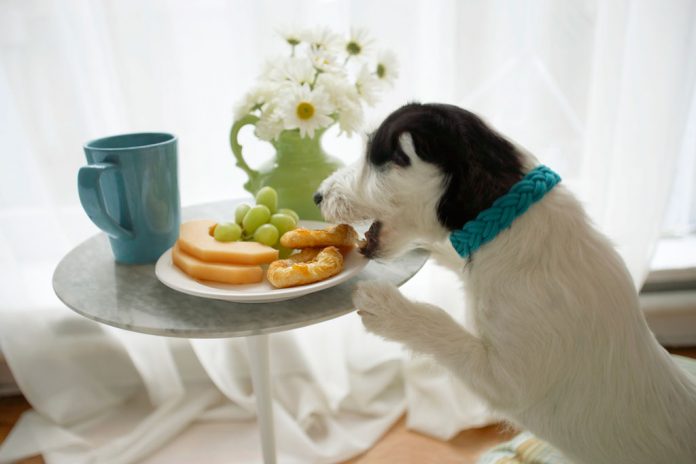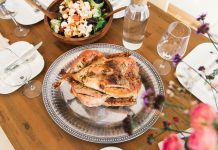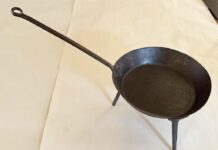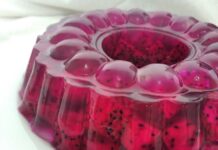My dog loves to sit under the table during dinner near the kids’ chairs in hopes of finding tidbits that may fall from their plates. I’ve even given our dog portions of food from our meal. Is that ok?
In some cases, no, it’s not a good idea to feed your dog some foods that come from your dinner table.
In a recent notice from the U. S. Food and Drug Administration, pet owners are reminded not to feed their dog some foods that are meant for human consumption. That’s because some foods people eat can be dangerous or even deadly for dogs, FDA says.
The reason?
An animal’s body processes food much differently than a human body, Carmela Stamper, a veterinarian at FDA, said in a written statement.
“Our bodies may break down foods or other chemicals that a dog’s can’t tolerate,” she said.
High on the list of human foods that dogs should not eat – chocolate and any food that contains xylitol, which is a sugar substitute that is used in many sugar-free foods.
Chocolate contains methylxanthines, a stimulant that can stop a dog’s metabolic process. Even a small piece of chocolate, particularly dark chocolate, can result in your dog developing diarrhea and vomiting. And xylitol, which can also be found in some peanut butters, can be deadly for dogs, FDA warns.
Other human foods FDA, the American Kennel Club and the American Society for the Prevention of Cruelty to Animals, says to avoid feeding to your dog include:
Raw meat. Just like in humans, any E. coli, Salmonella or other harmful bacteria that may be present in raw meat, can also make your dog sick. It’s also a good idea for you to wash your hands if you are handling raw meat before you give your dog anything to eat.
Raw eggs. Just like raw meat, raw eggs can contain Salmonella. Also, raw eggs contain avidin, an enzyme that decreases the absorption of biotin. This can lead to skin and hair coat issues as well as cause neurologic problems in dogs.
Grapes, raisins or currants. These foods can cause kidney failure in some dogs.
Fried and fatty foods. These items can cause pancreatitis, a potentially life-threatening disease.
Cinnamon. While cinnamon is not toxic to dogs, it can irritate the inside of dogs’ mouths and it can lower a dog’s blood sugar too much and can lead to diarrhea, vomiting, increased, or decreased heart rate, and even liver disease.
Onions, garlic, and chives. Garlic can create anemia in dogs, causing side effects such as pale gums, elevated heart rate, weakness and collapsing. Poisoning from garlic and onions may have delayed symptoms, so if you think your dog may have eaten some, monitor him or her for a few days, not just right after consumption. However, since garlic and onion tend to be cumulative toxins, they are unlikely to cause a problem unless your dog ingests a very large amount at one time or eats them often, says Dr. Valerie Parker, a veterinarian and associate professor at The Ohio State University’s College of Veterinary Medicine.
Moldy food. If you throw away moldy cheese rinds or hamburger buns in the trash can, make sure your dog doesn’t then get into the garbage, where he may eat them.
Salty snacks. Salty snacks can increase water retention in some dogs. So if you dog happens to grab a bag of salty potato chips or pretzels, make sure your dog has access to plenty of water.
Macadamia nuts. These are some of the most poisonous foods for dogs and can have a damaging effect on the dog’s nervous system. They can cause vomiting, increased body temperature, inability to walk and lethargy.
Ice cream. As tempting as it may be to want to give your dog ice cream on a hot summer day, most dogs don’t digest dairy products well and many may also have lactose intolerance.
So, while your dog may look longingly at you while you eat, you may want to resist the temptation to share your goodies until you are sure that the foods you are eating won’t have a negative impact on your dog.
Talk to your veterinarian before introducing human foods to your dog to make sure that your good intentions don’t accidentally cause harm for your pets.
Chow Line is a service of the College of Food, Agricultural, and Environmental Sciences and its outreach and research arms, OSU Extension and the Ohio Agricultural Research and Development Center. Send questions to Chow Line, c/o Tracy Turner, 364 W. Lane Ave., Suite B120, Columbus, OH 43201, or turner.490@osu.edu.
Editor: This column was edited by Dr. Valerie Parker, DVM, an assistant professor, clinical, at The Ohio State University’s College of Veterinary Medicine
















